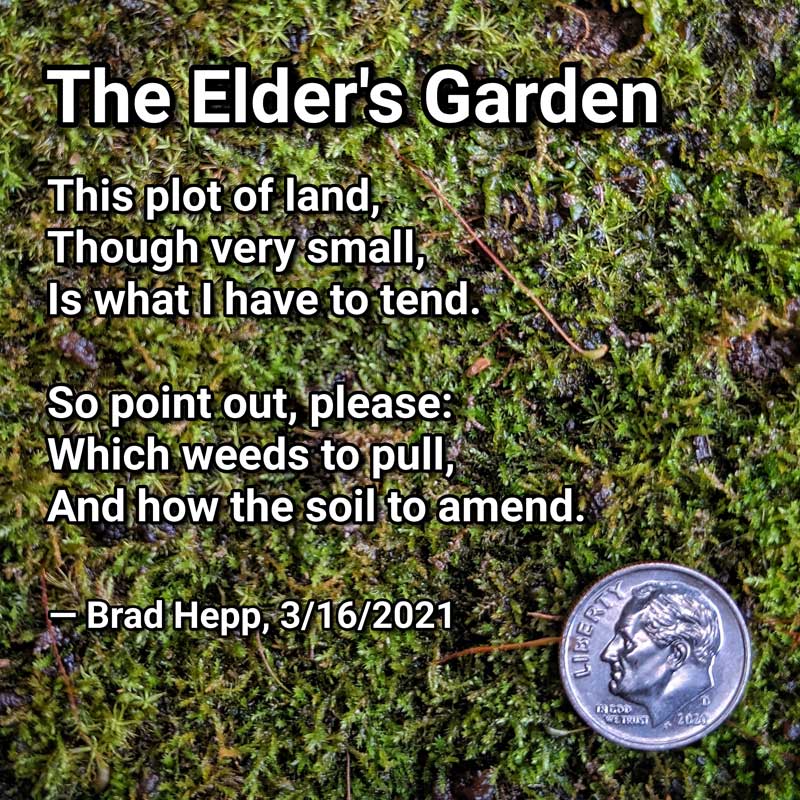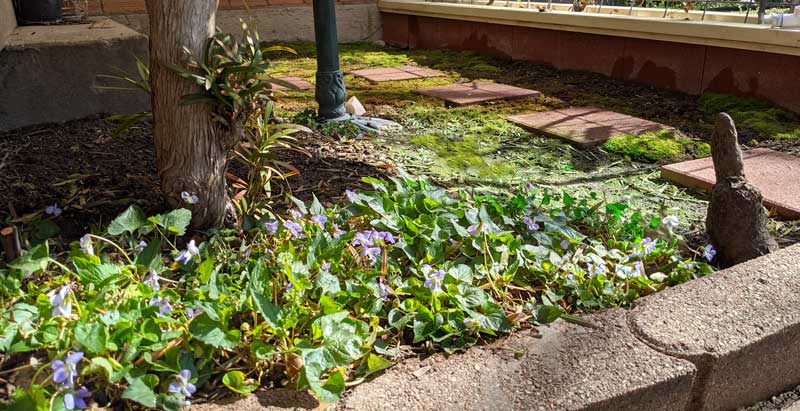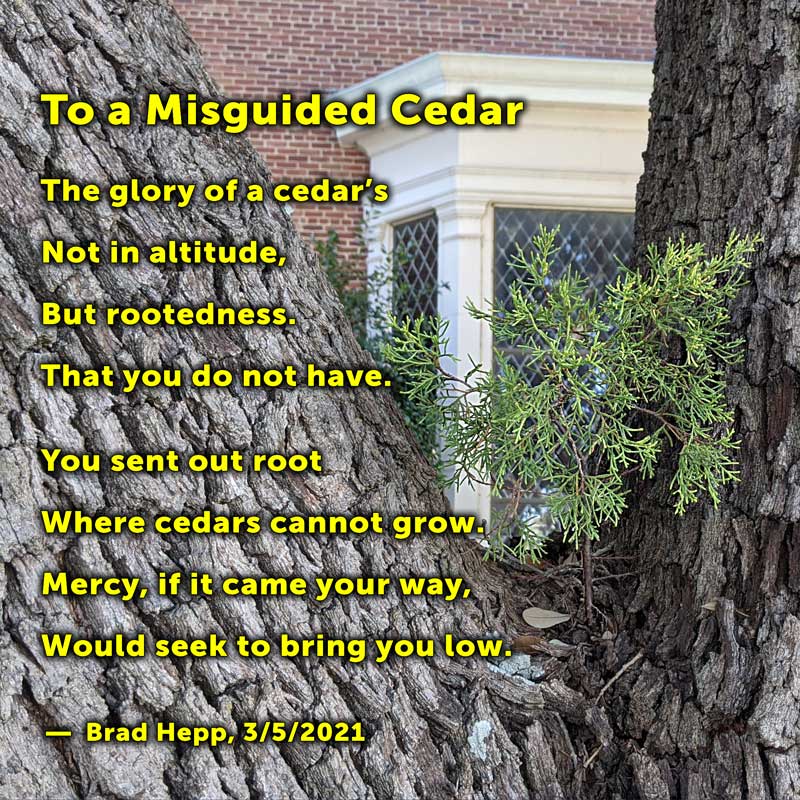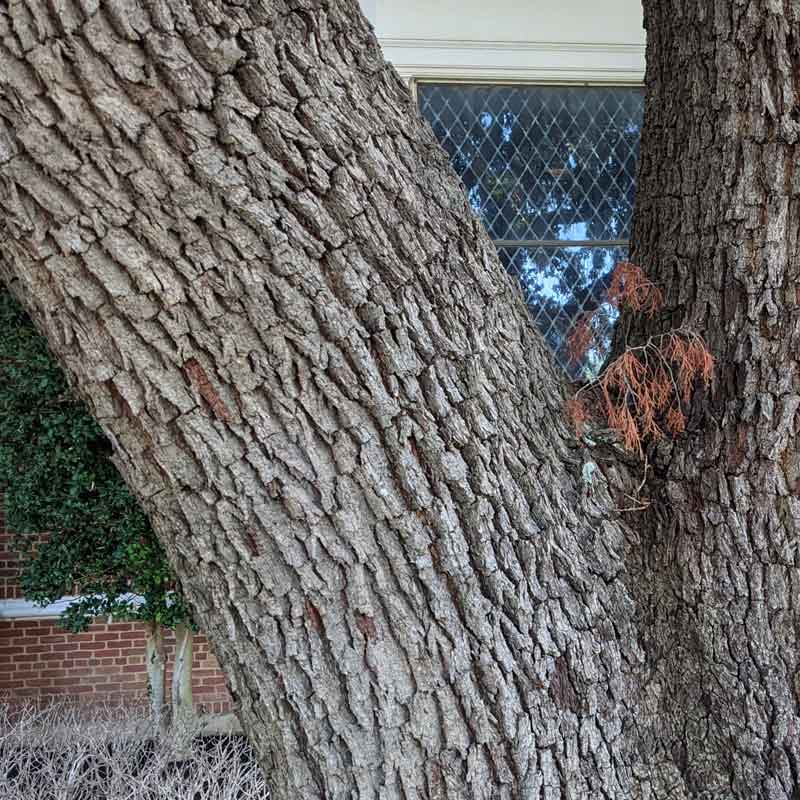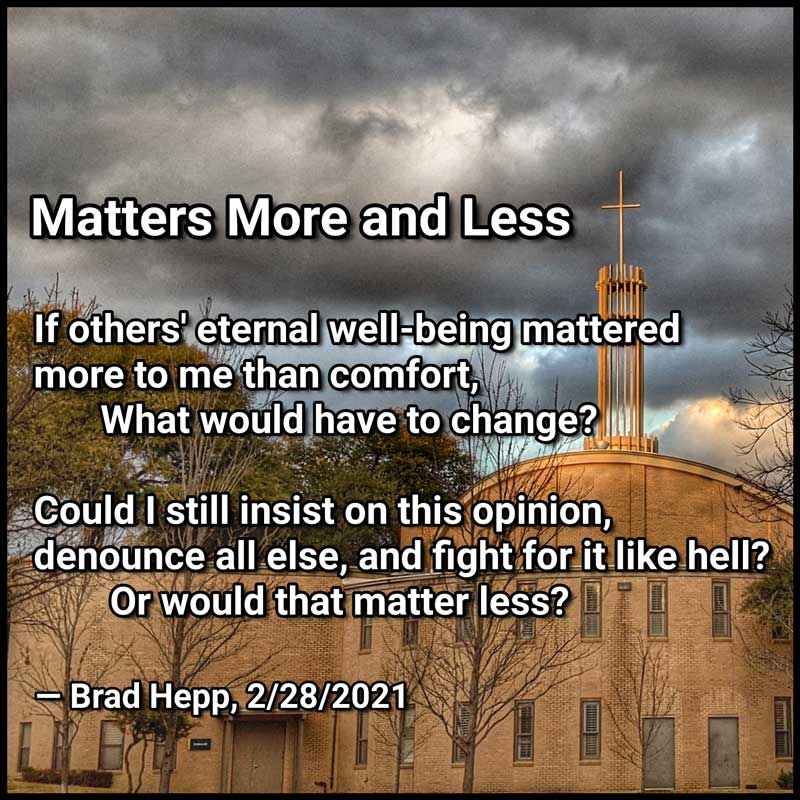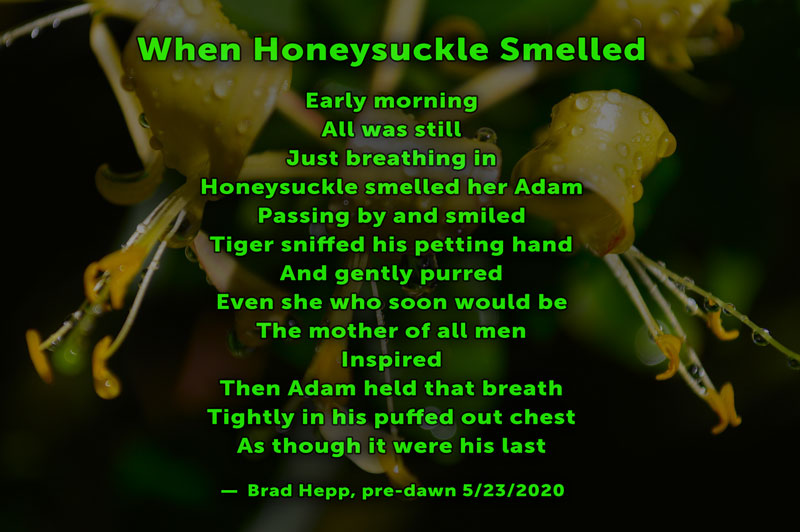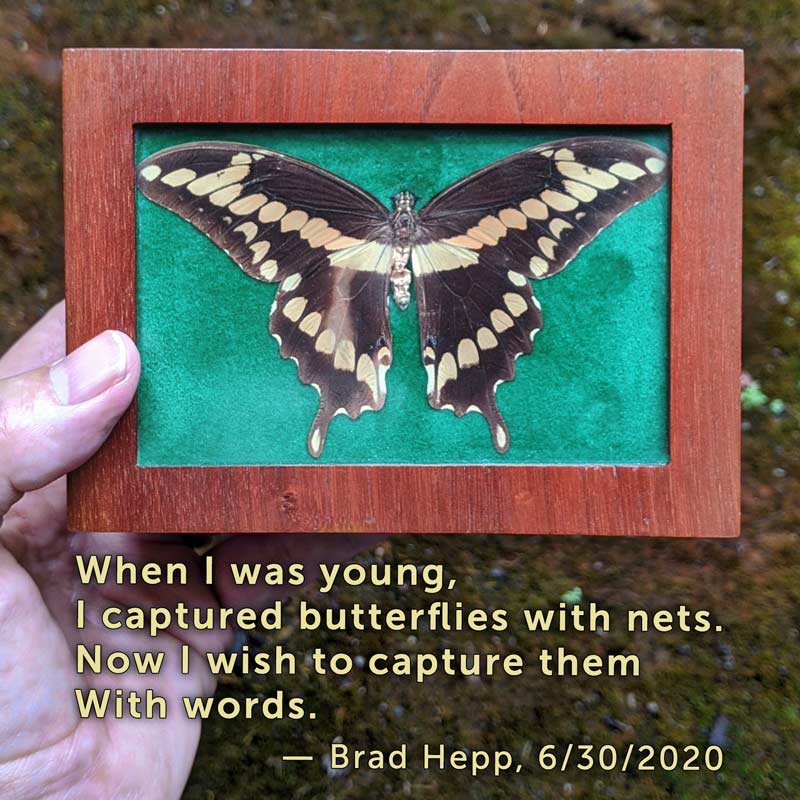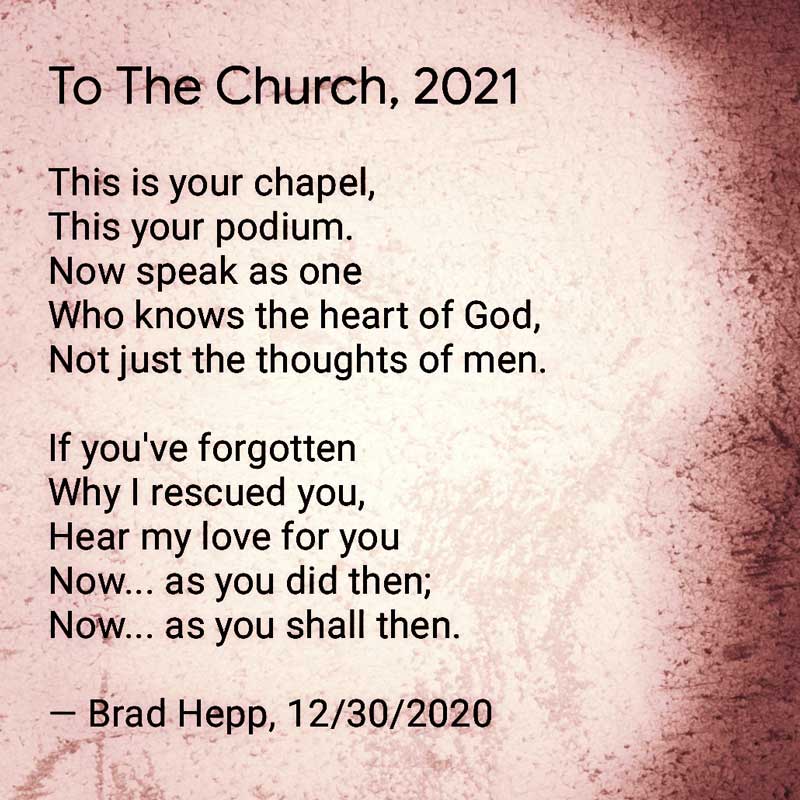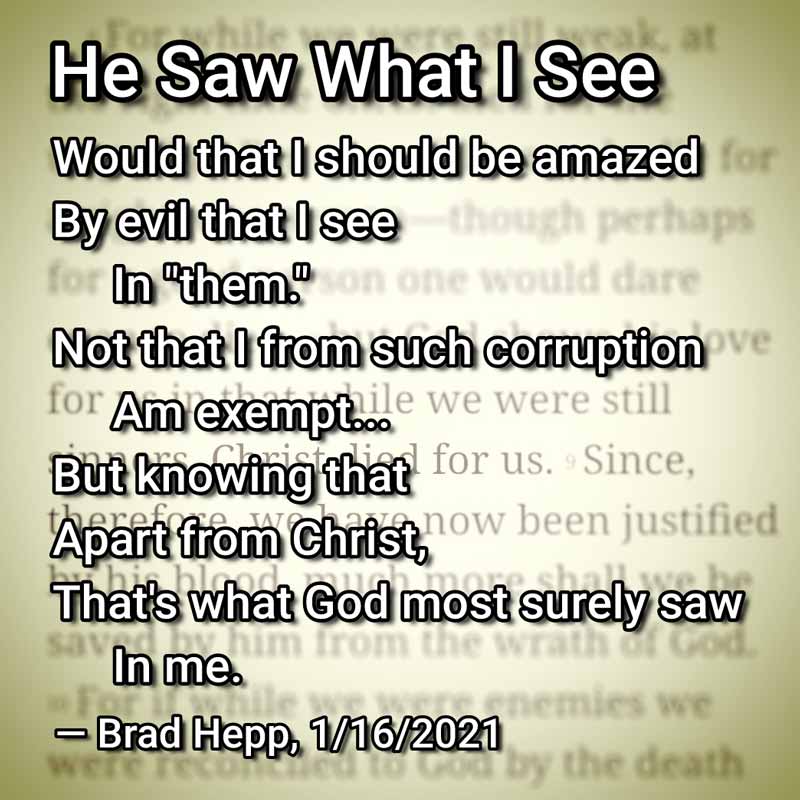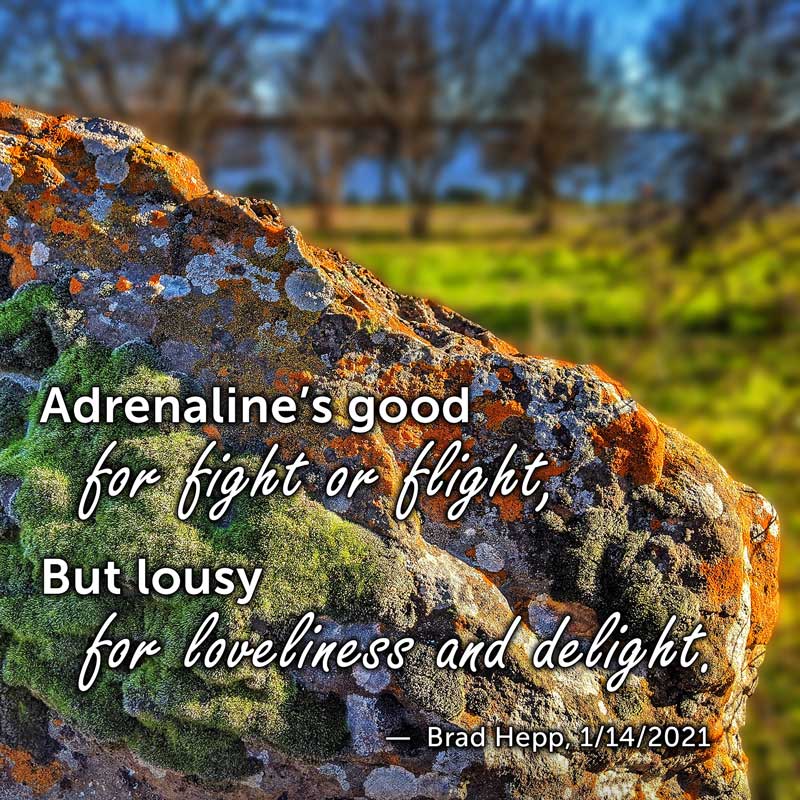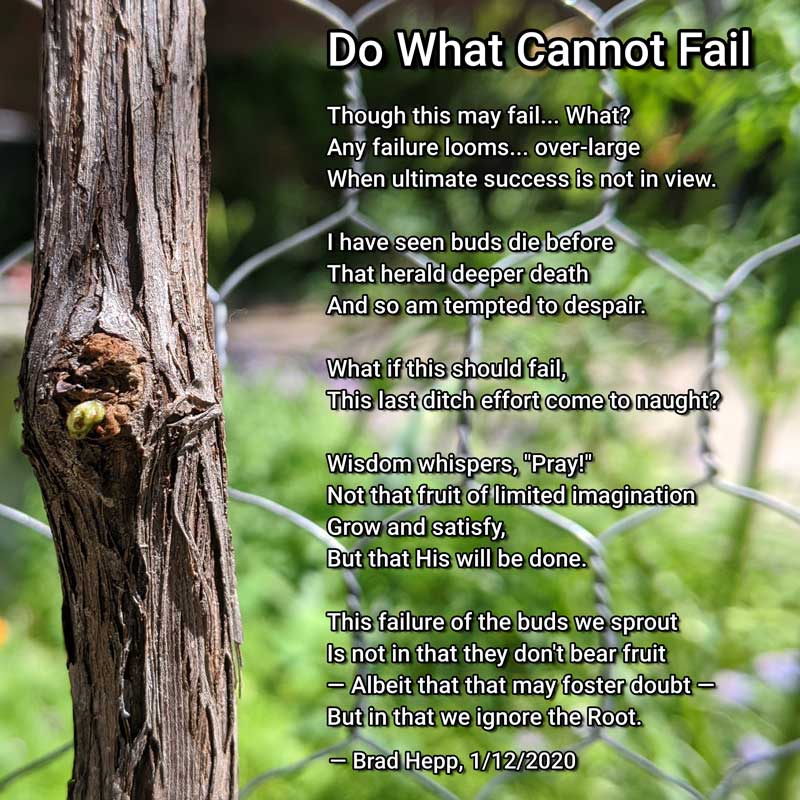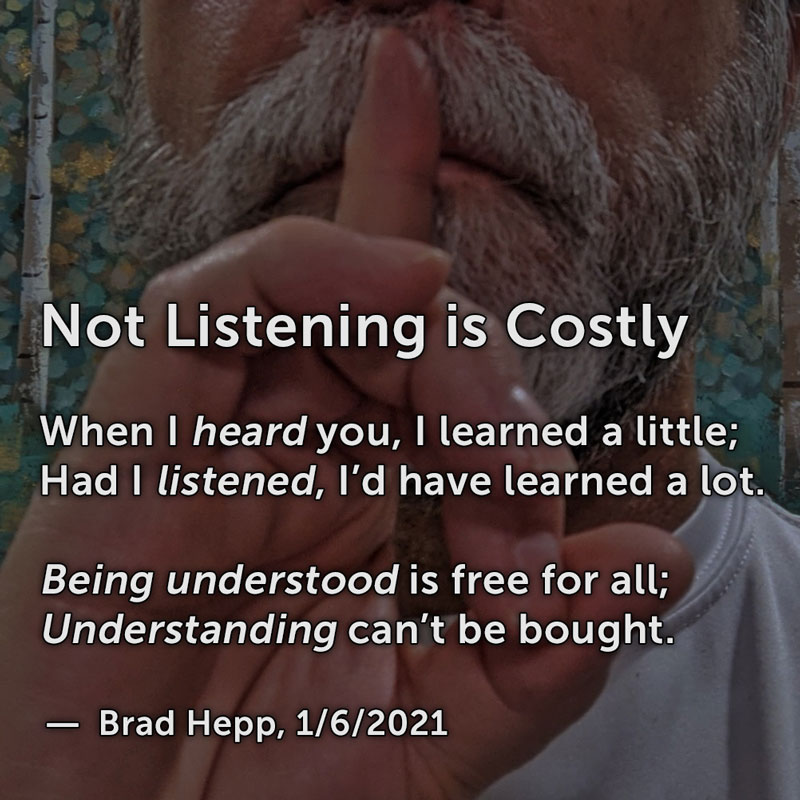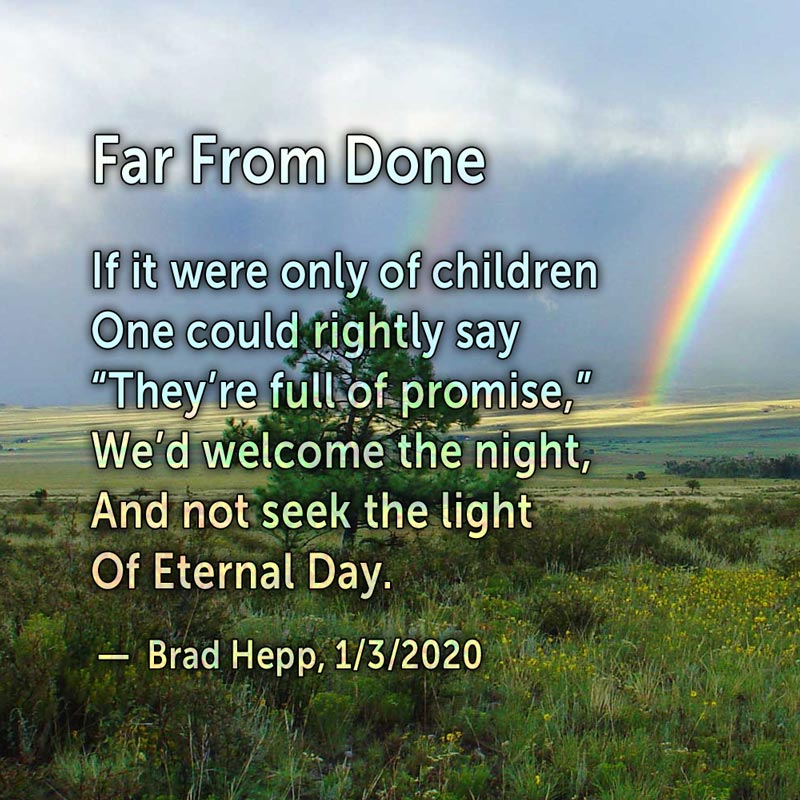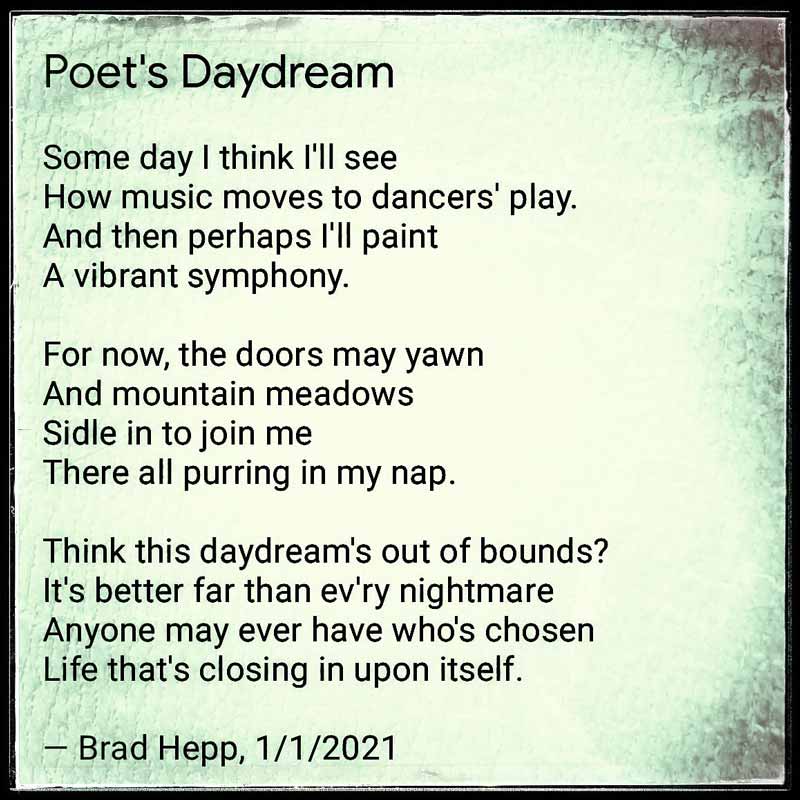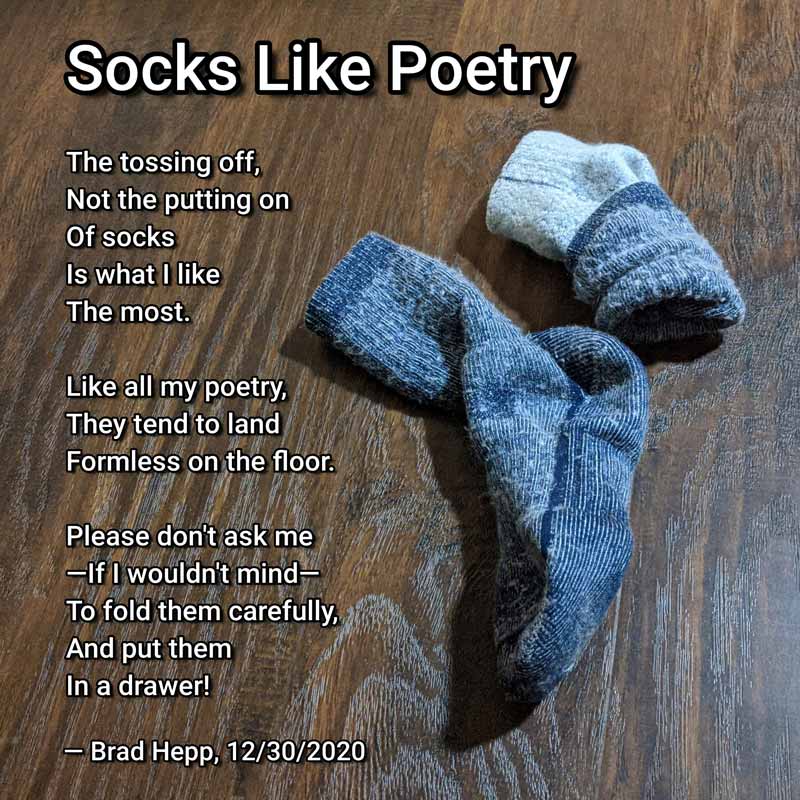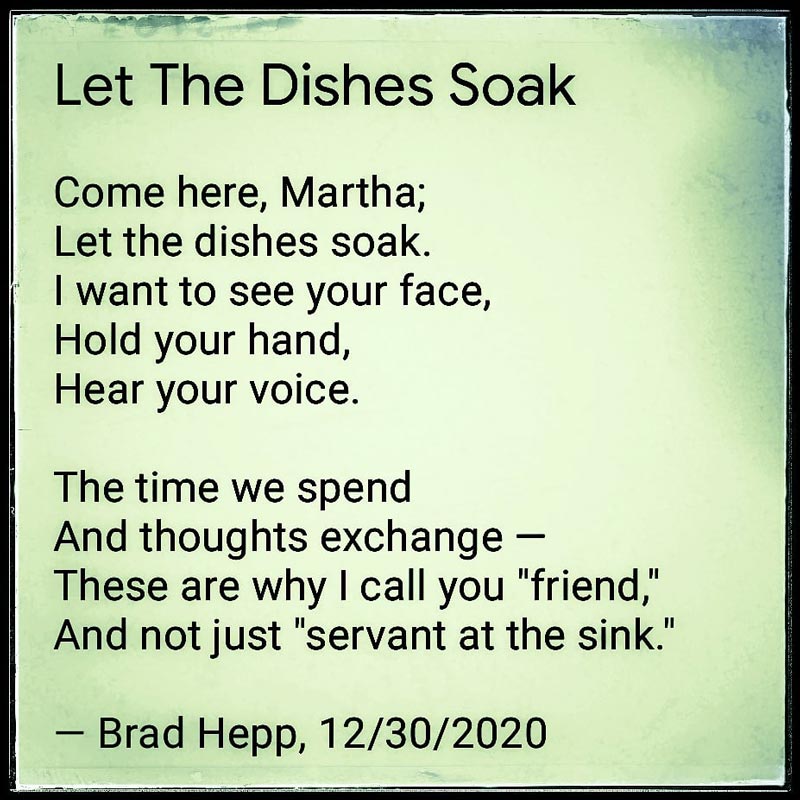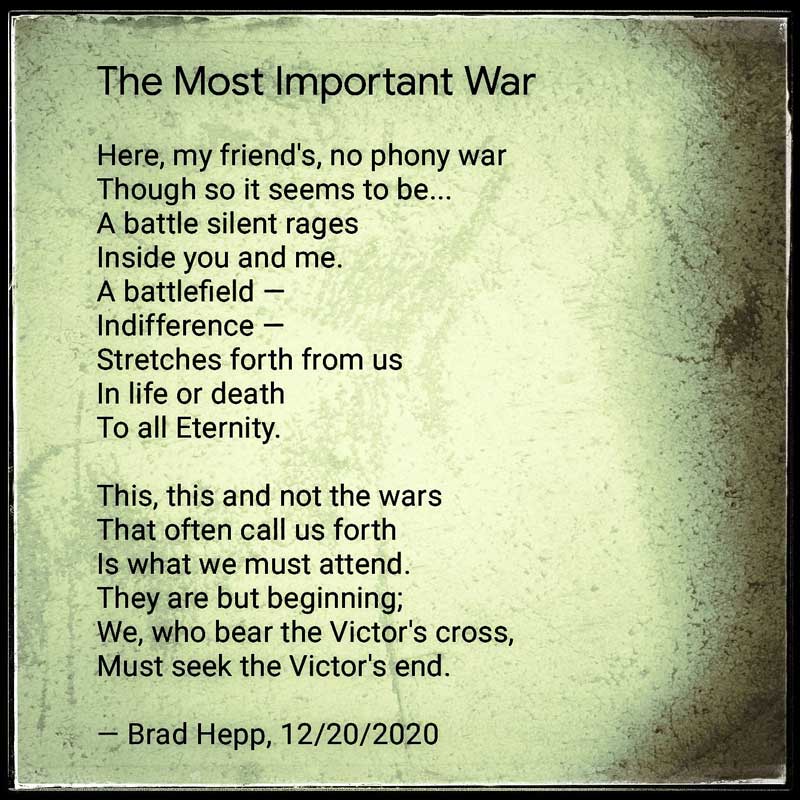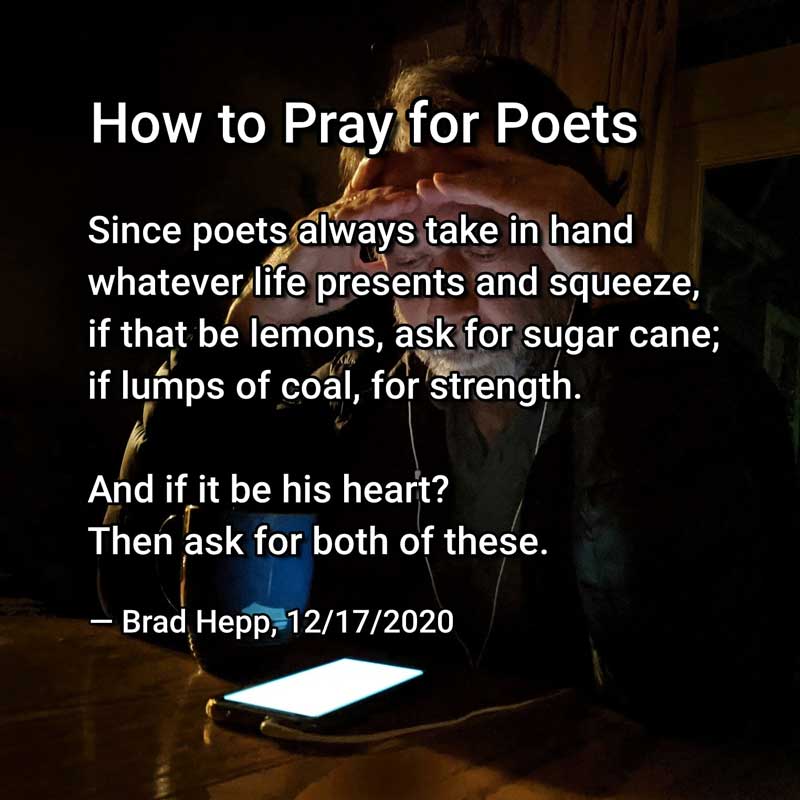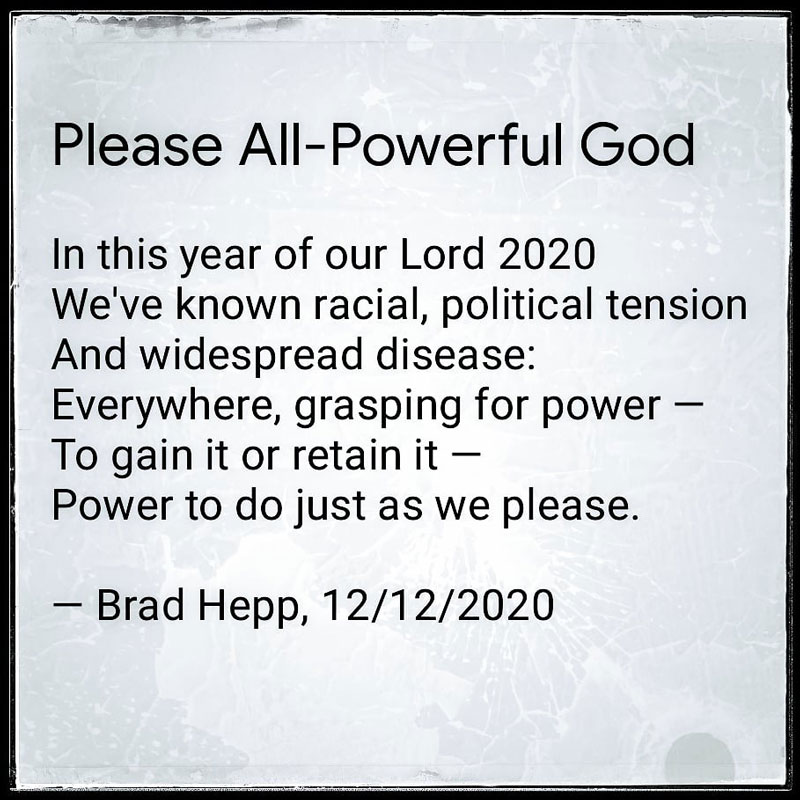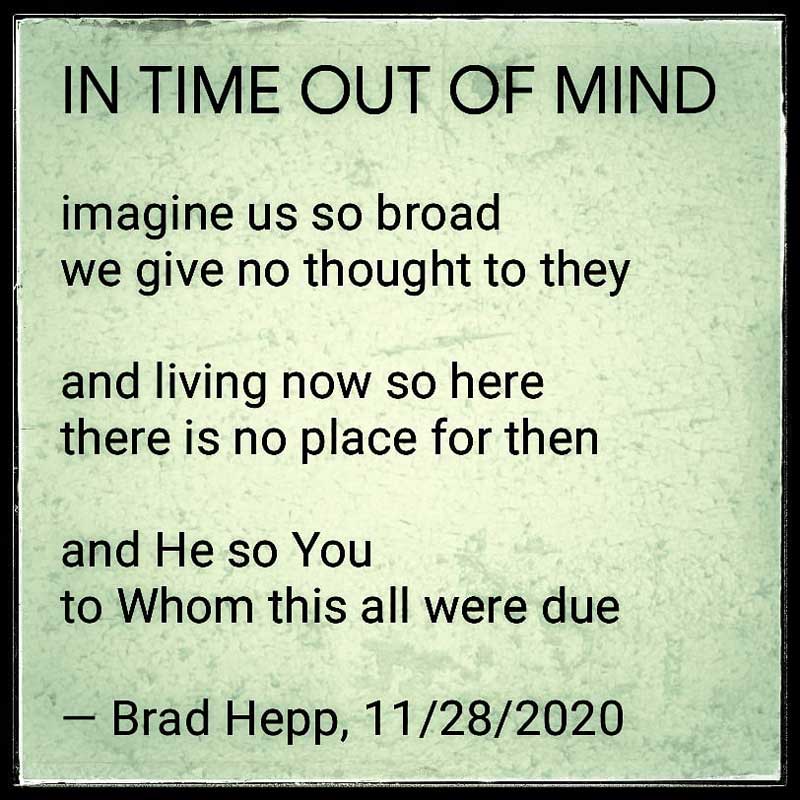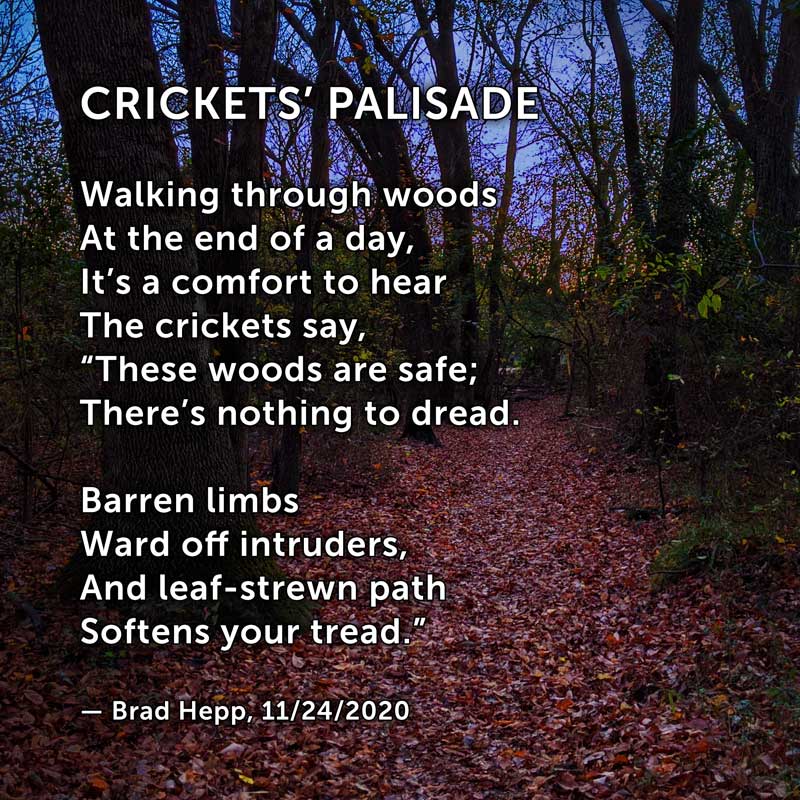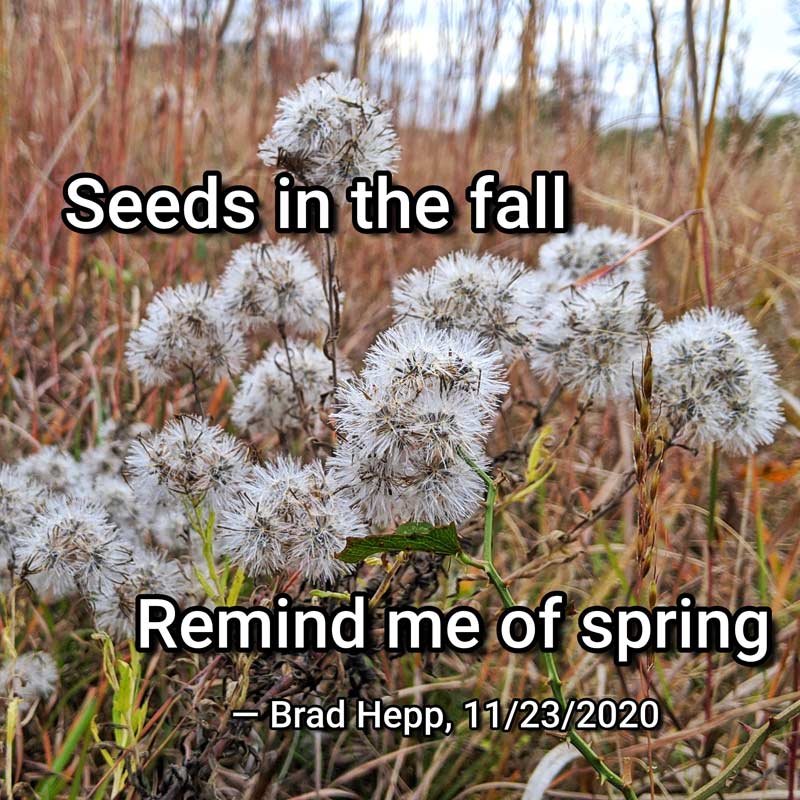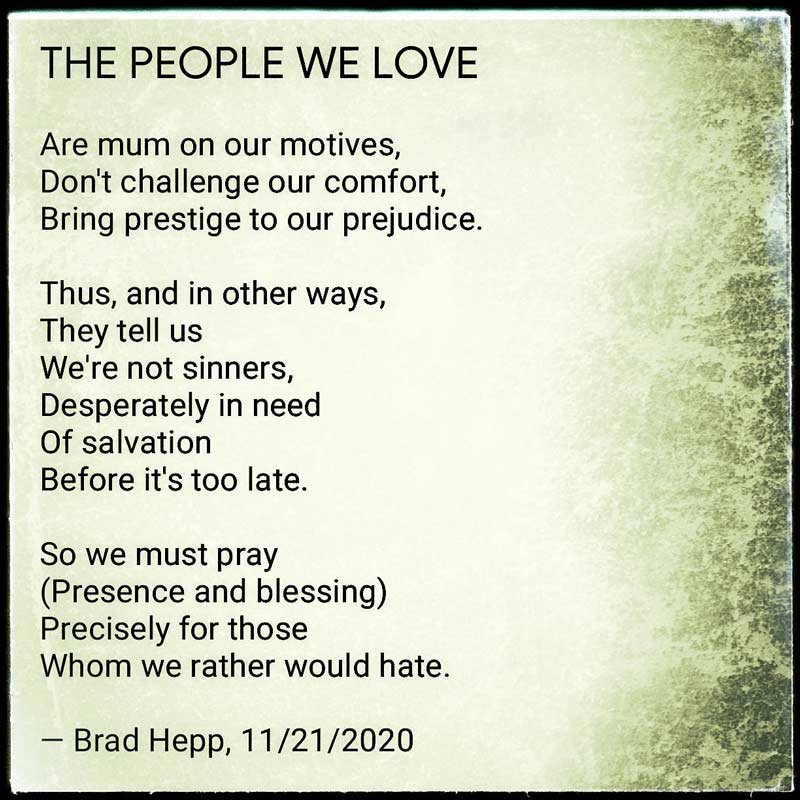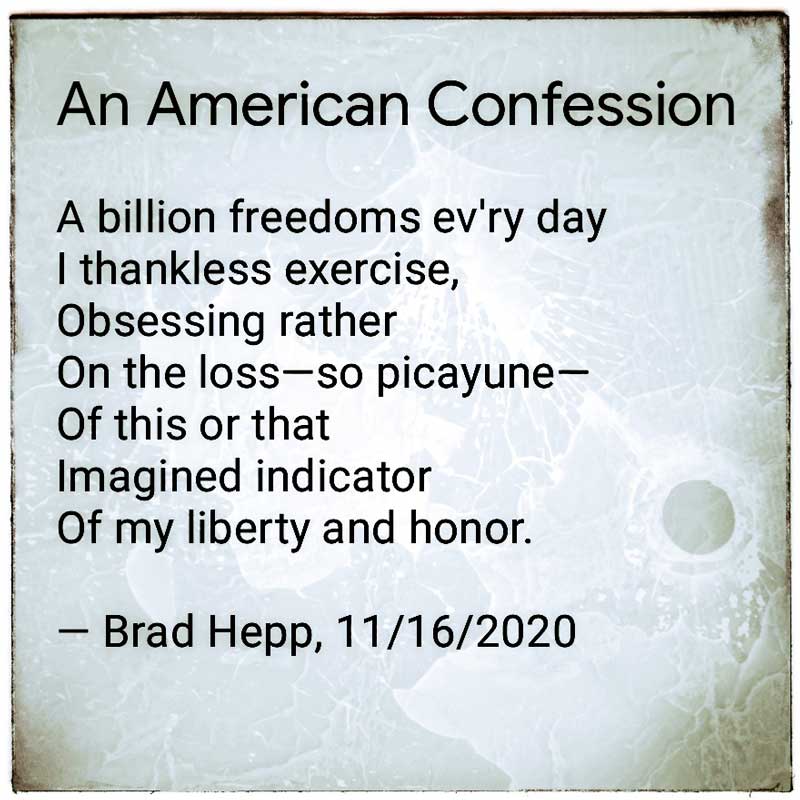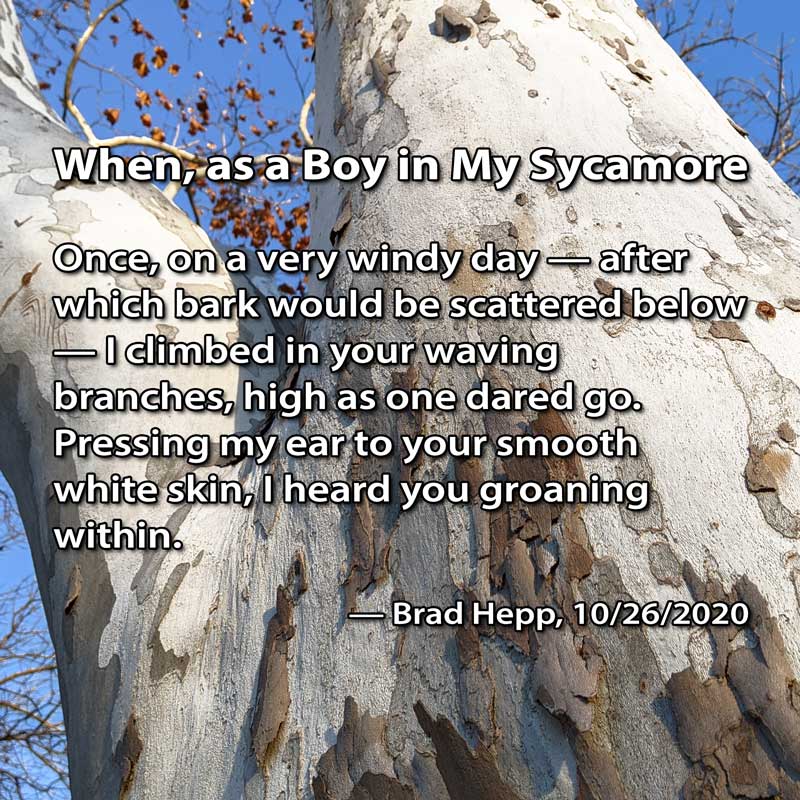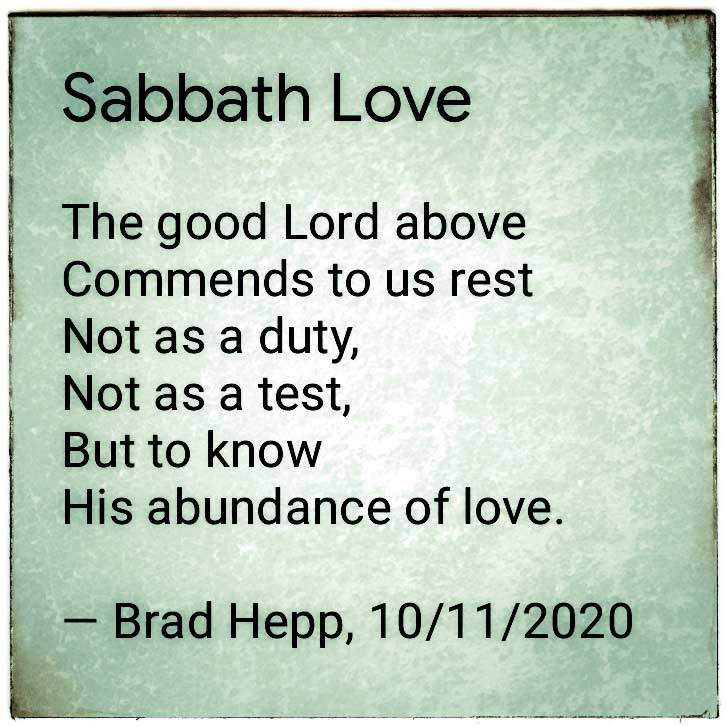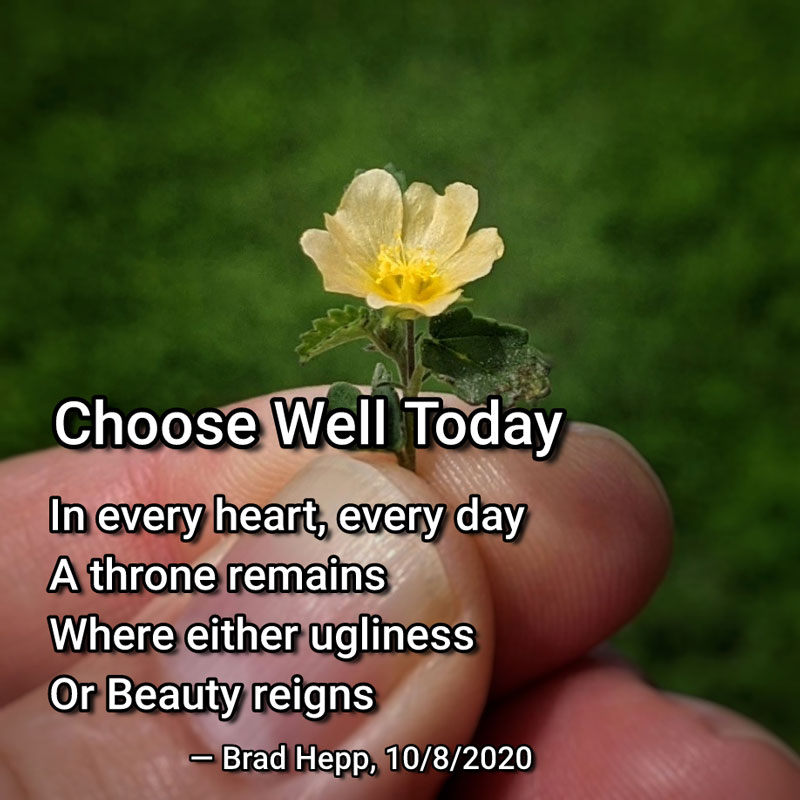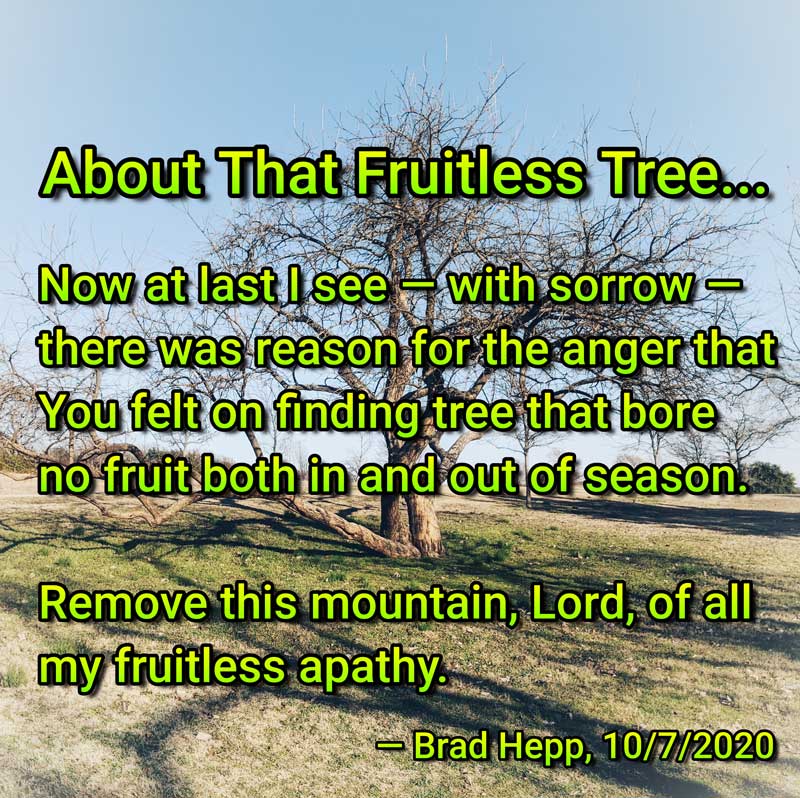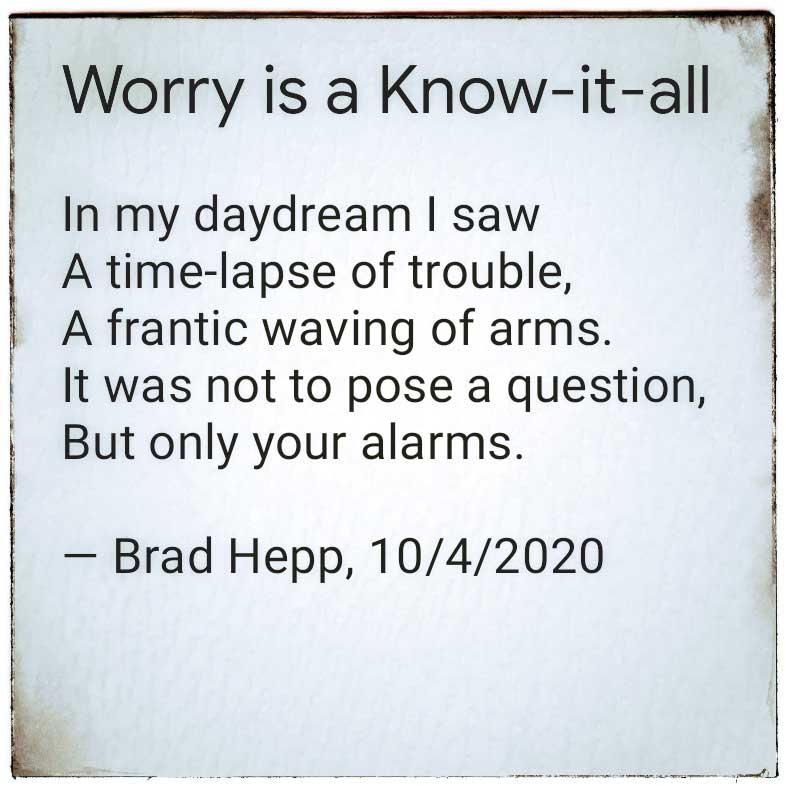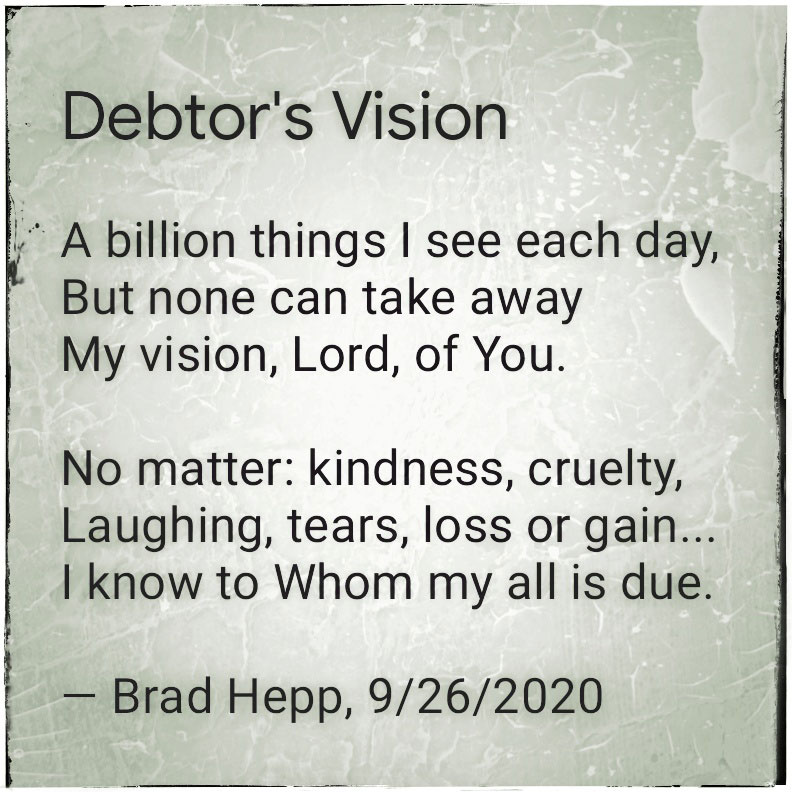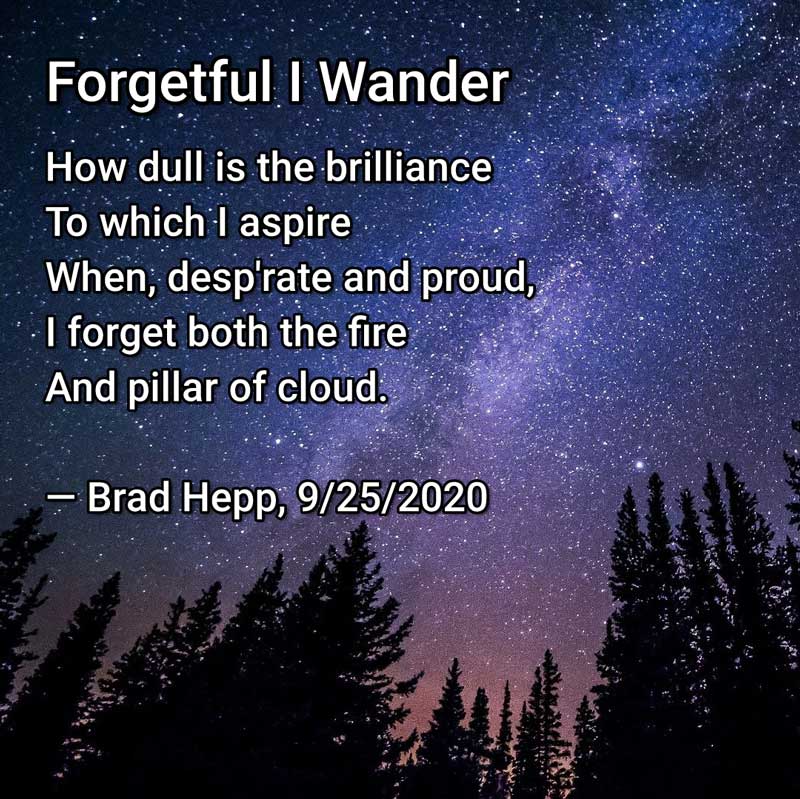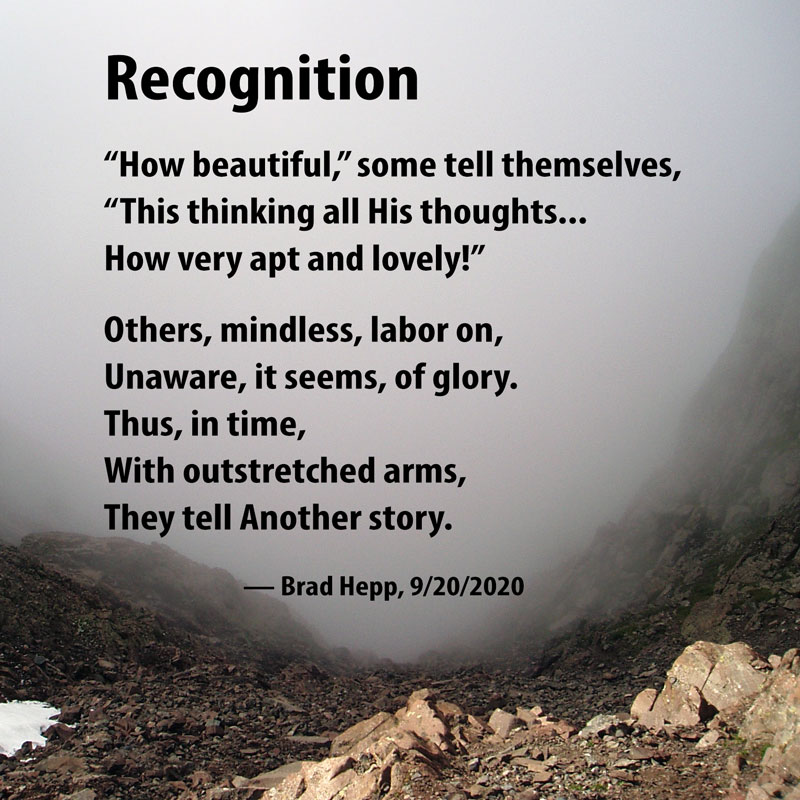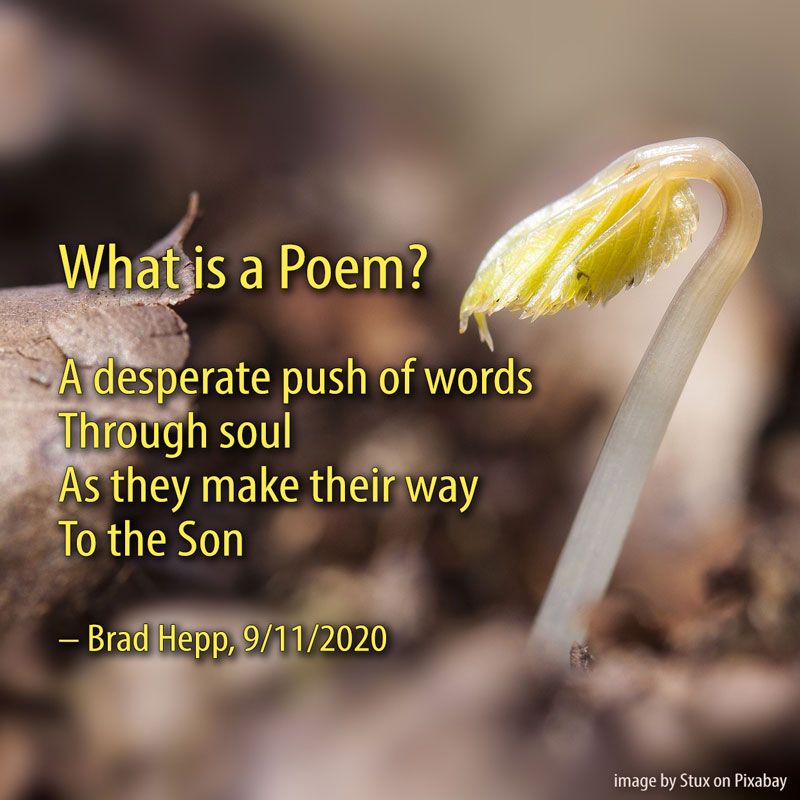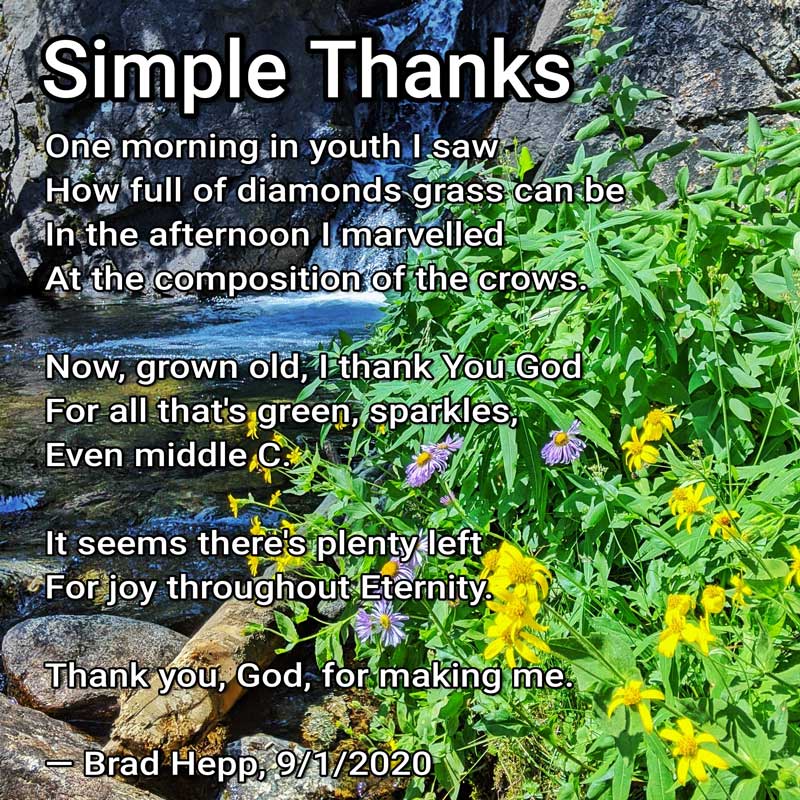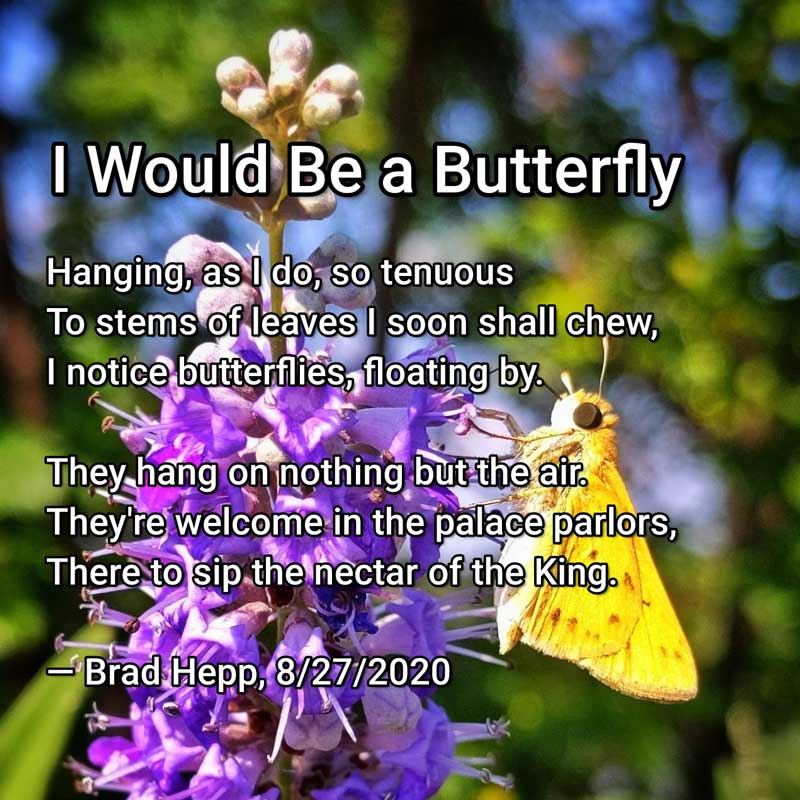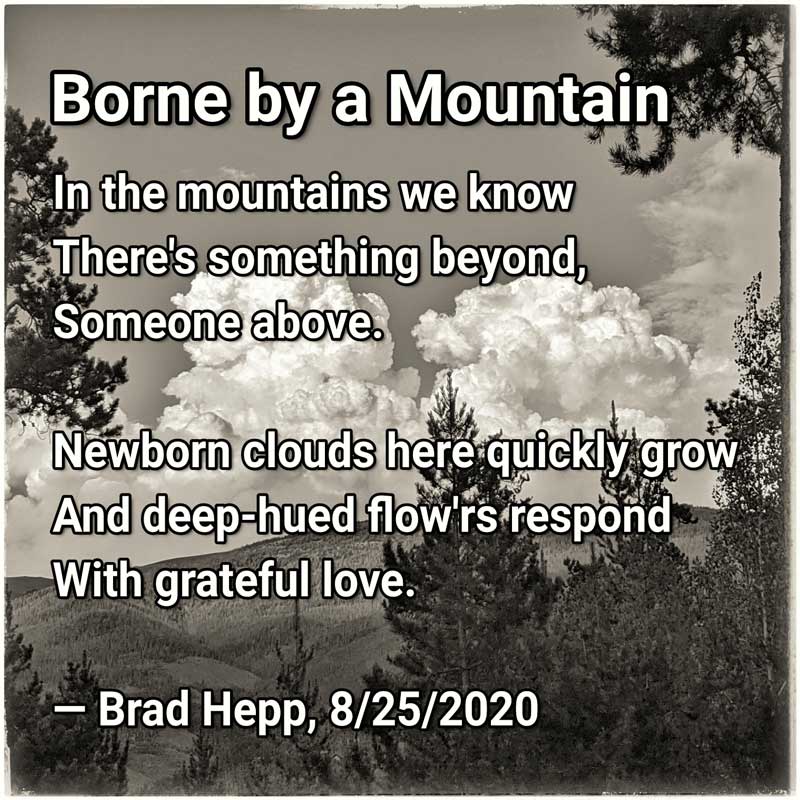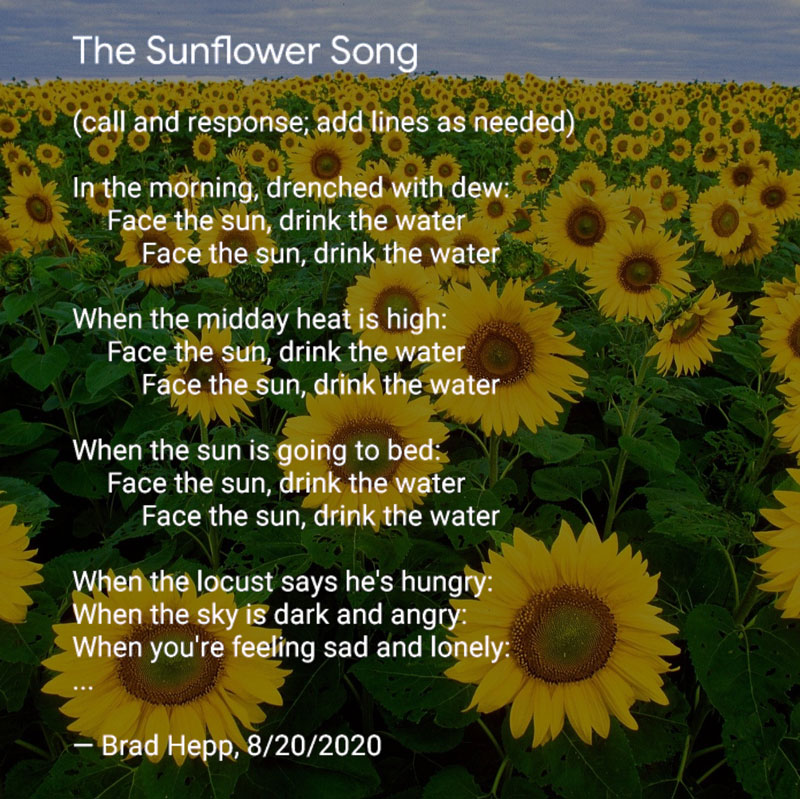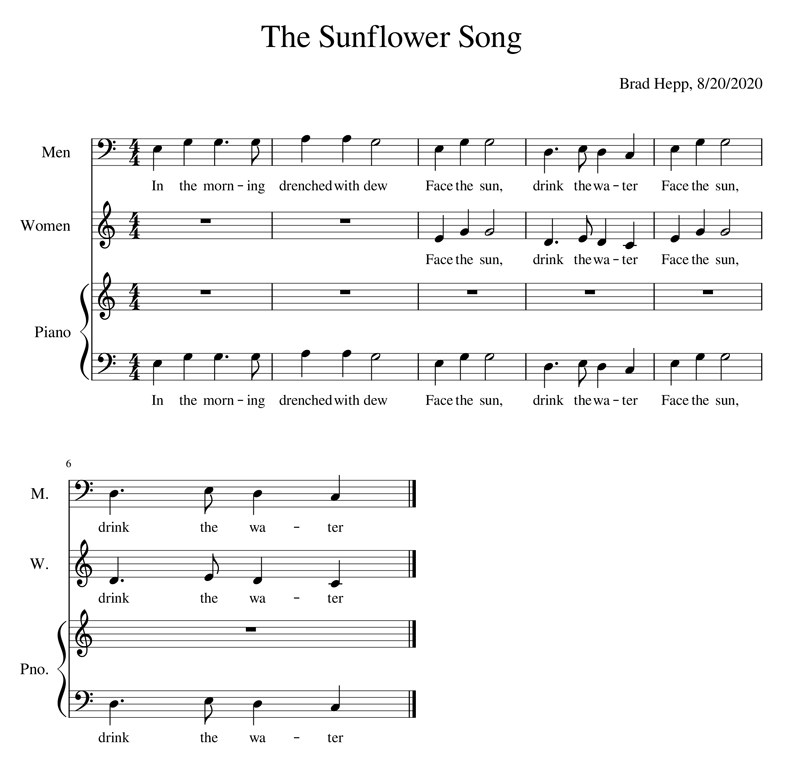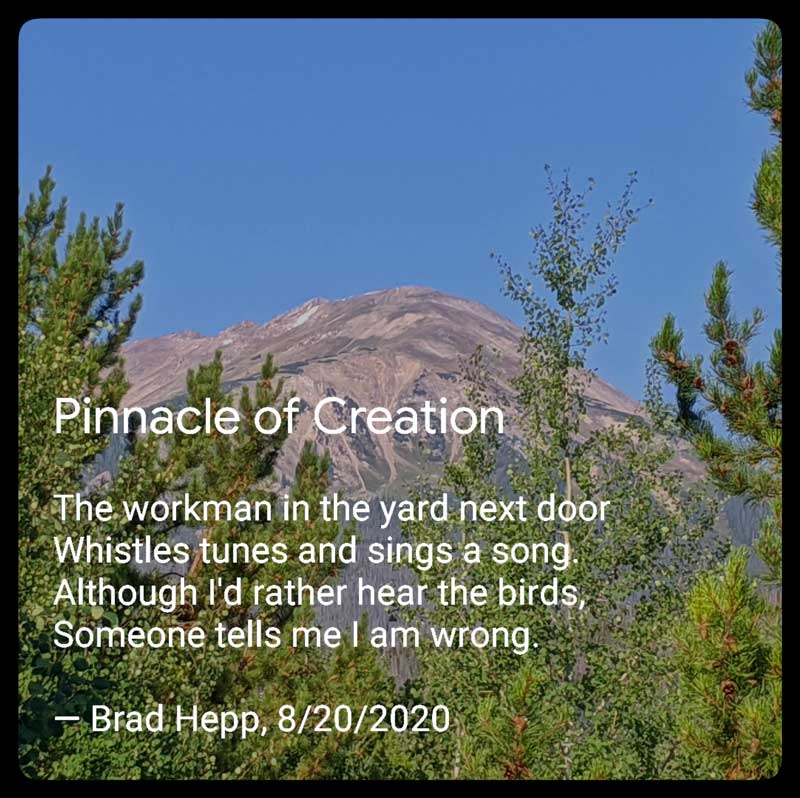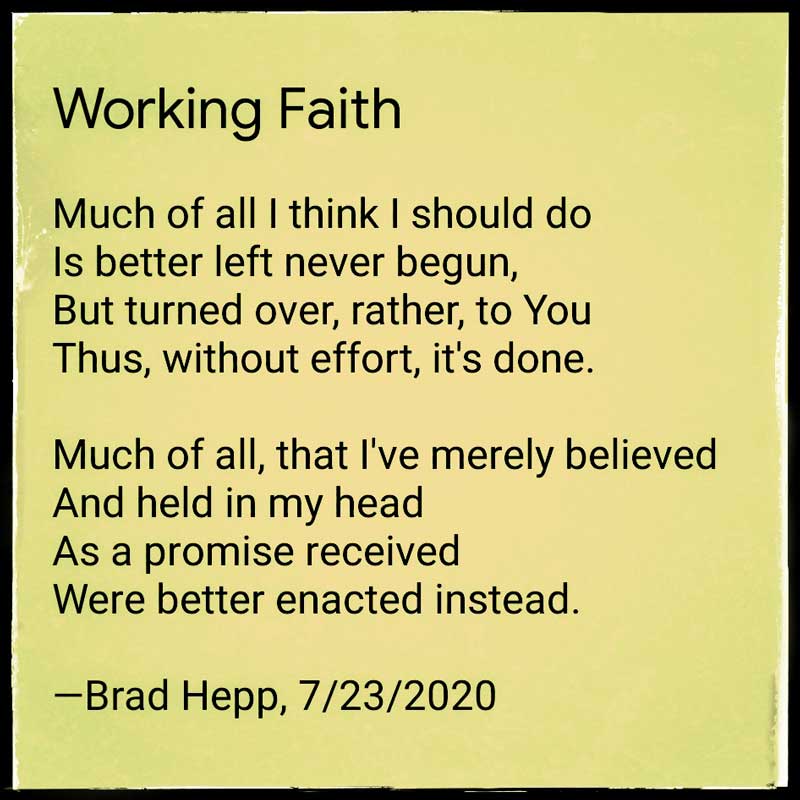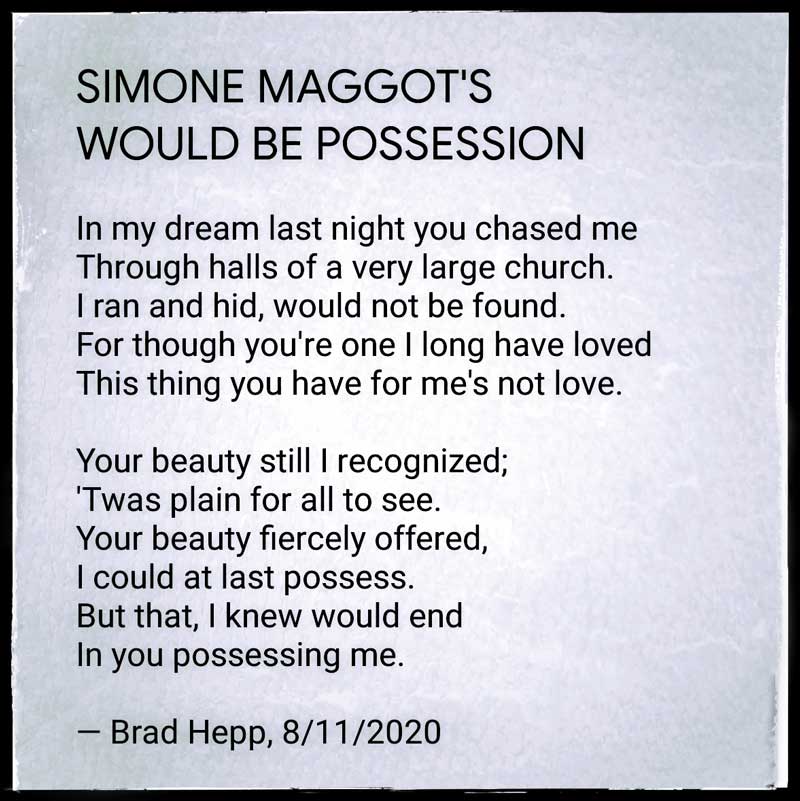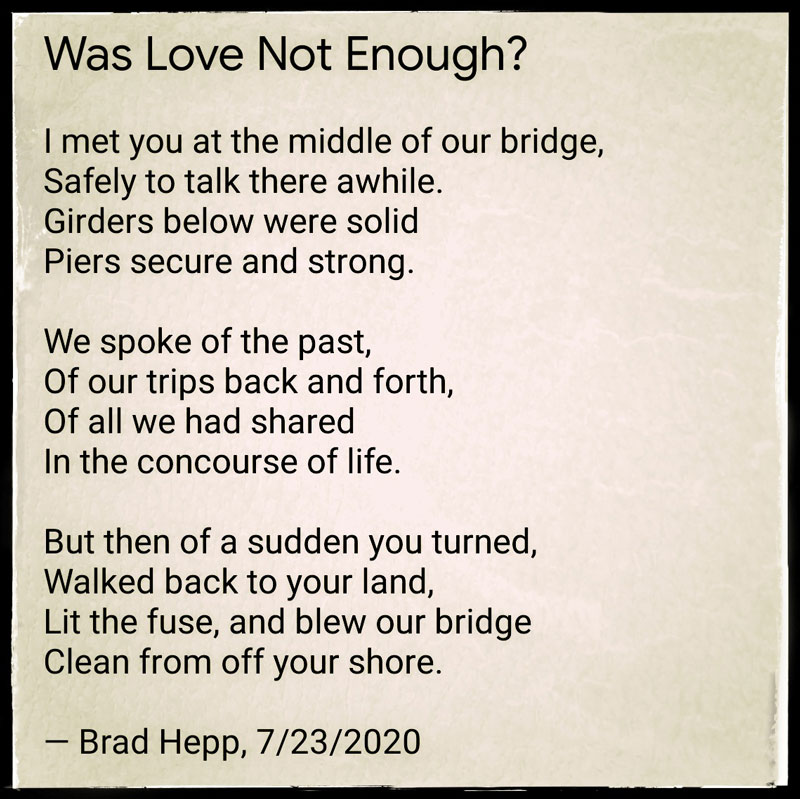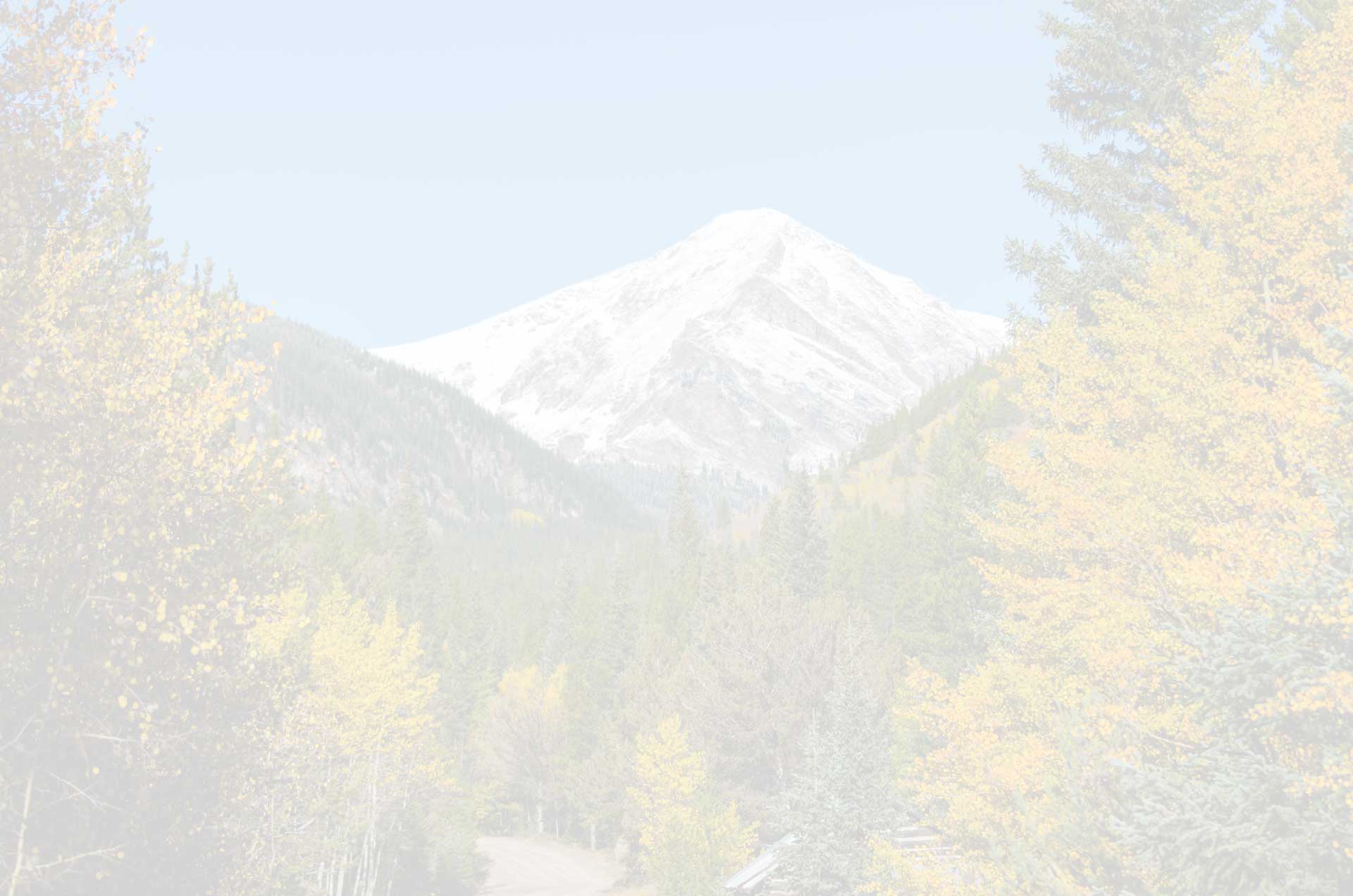I HAVE NOTICED THAT…
In Spring, artists are drawn to Creation.
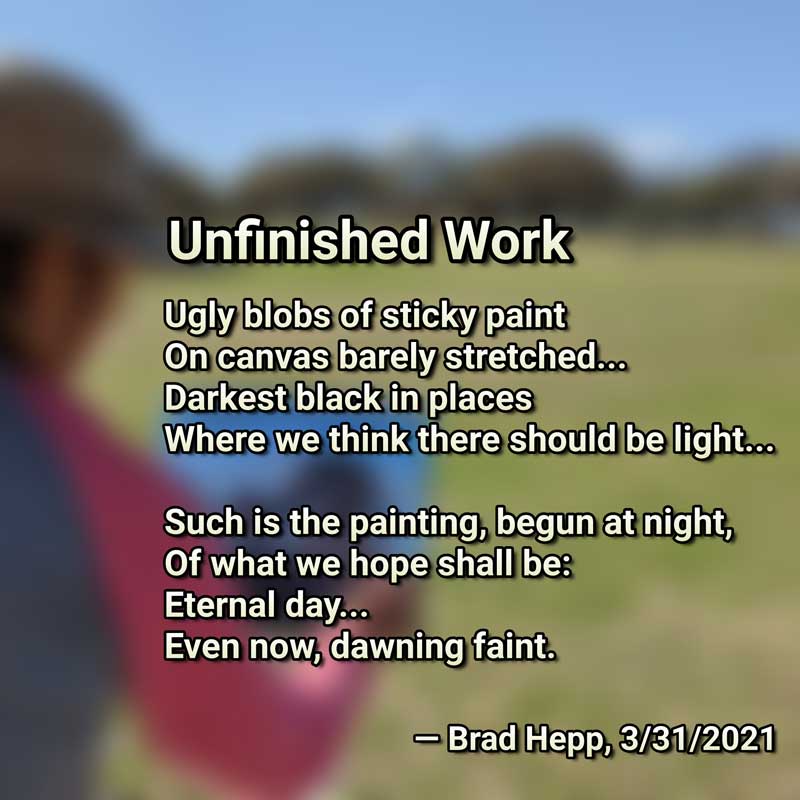
Commentary
Back when I posted this on Facebook, I wrote, “Please subscribe to my blog, where I give the background of my simple poems like this one, and the more complex ones, the ones even I barely understand!”
“Simple poems like this one,” eh? So it’s over two months later, and I’m getting around to posting this on my blog. How simple was it? Do I remember what I was saying? Well, kinda….
I encountered this artist on Flagpole Hill, and asked her about her technique. Interestingly, she had a lot of dark areas on the canvas, areas whose eventual subject I could SEE, by looking where she was looking: the bright green grass, the shimmering green leaves. These, she began as dark blobs, explaining “I find it easier to start with the darkness as a base, and then apply the lighter colors.”
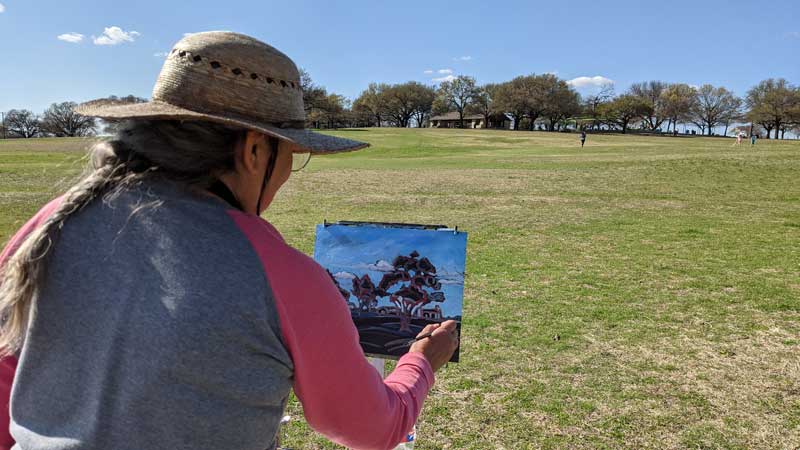
My poetic response is a reflection on how eternal life has barely begun (“canvas barely stretched”). We don’t understand yet how God will work beauty out of the painful and ugly experiences we now encounter. But we have hope, because we know Him to be a skillful artist.
A Skillful Artist
I went home and looked up this artist (she sells in galleries). I like her finished work. What I saw that afternoon on Flagpole Hill was not a finished work. It is fair to say that if this is all I had seen, I might feel foolish admiring her “technique,” such as it is, in this unfinished work.
